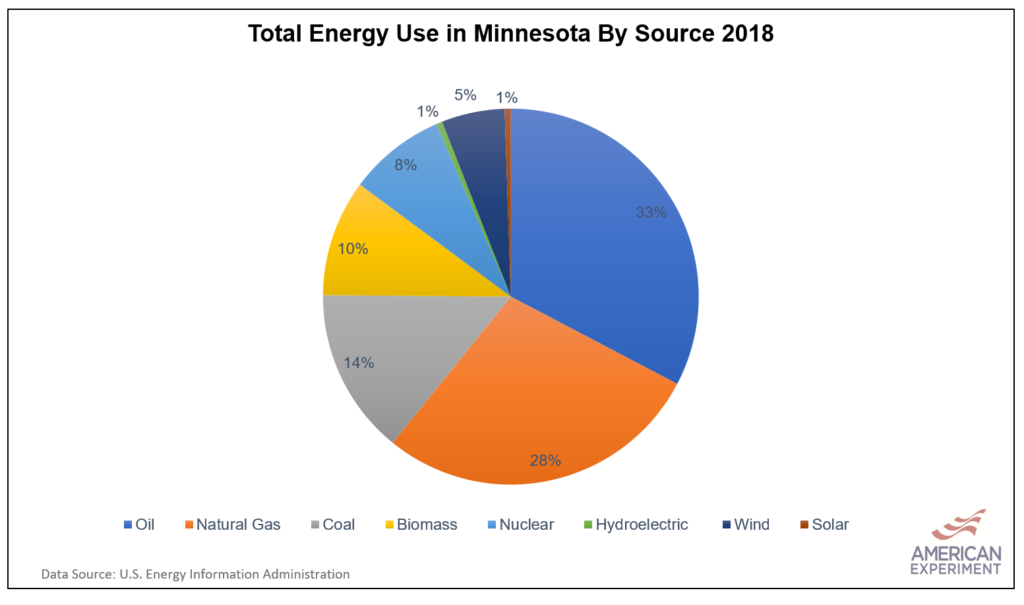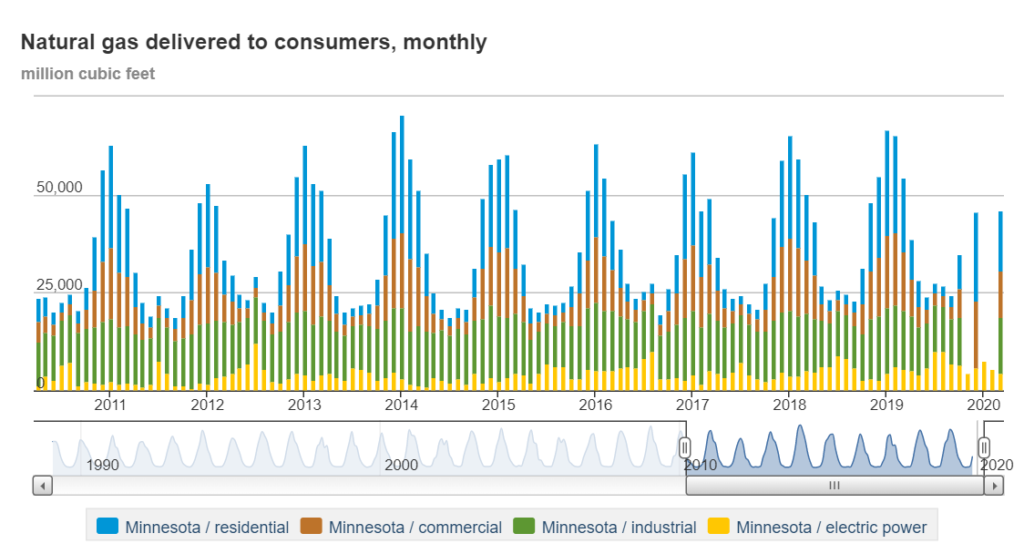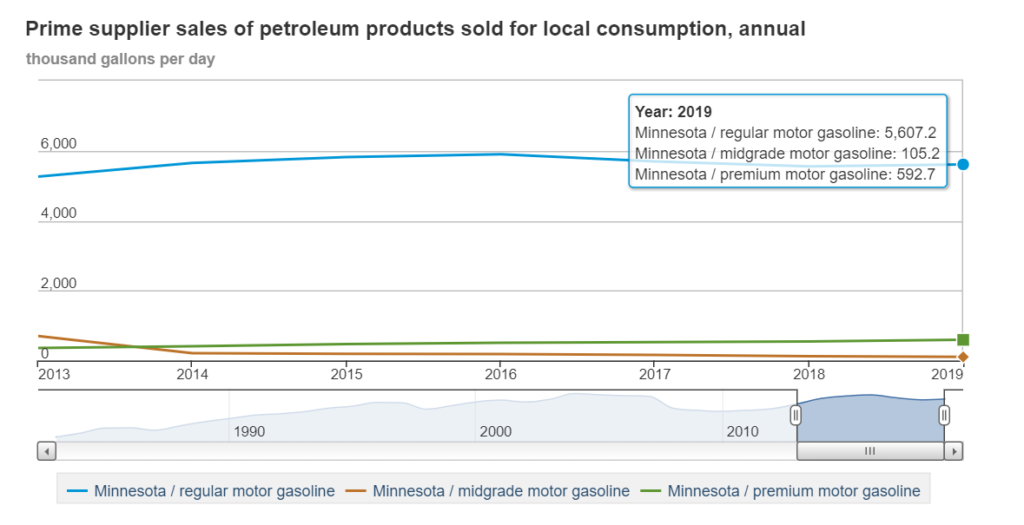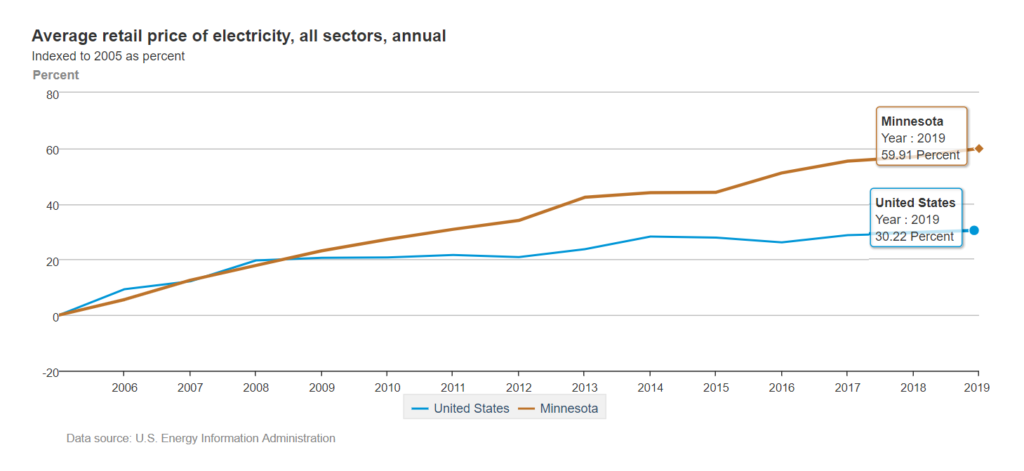Utility, Co-Op Support of ECO Act is Crony Capitalism, Plain and Simple
Over the past few weeks I have written about why the fuel switching provisions of the ECO Act are problematic (here, here, and here), and why conservative legislators should remove them from the bill while maintaining the good provisions within it. This will be important to keep in mind, because the Minnesota State Senate will be hearing the bill this Thursday (last week’s hearing was postponed for the George Floyd memorial service).
One of the talking points used by advocates of the ECO Act is that the bill has the support of Investor Owned Utilities (IOUs), like Xcel Energy, and the support of many rural electric co-ops and municipal utilities. However, the reason electric companies support the bill is because it gives them an unfair advantage over their competitors and allows them to use your money to grow their market share in the energy sector.
The pie chart below shows that the vast majority of the energy Minnesotans use everyday comes from oil and natural gas. Oil and natural gas account for 33 percent, and 28 percent of our energy use, respectively, and together they account for 61 percent of all the energy consumed in Minnesota.

Oil products are predominantly used for transportation, but heating oil and propane are also used for home heating and water heating. Natural gas is increasingly being used to generate electricity, but its main use in Minnesota is home heating, according to data from the U.S. Energy Information Administration (EIA).

Every day, Minnesotans purchase about 6.3 million gallons of gasoline, bringing annual gasoline purchases to 2.3 billion gallons of gasoline, according to data from EIA. If we assume the cost of each gallon is $2.50, this means the motor fuel market for gasoline in the state is about $5.8 billion per year.

Given its enormous size, it’s no surprise that electric companies of all kinds are trying to write the rules in their favor, and force you to subsidize electric cars and charging infrastructure and tap into this massive energy market, but that doesn’t mean it is the right thing to do.
As we’ve seen from Minnesota’s 2007 renewable energy mandate, which has caused Minnesota’s electricity prices to increase 30 percent faster than the national average, Minnesota politicians are exceptionally bad at picking winners and losers in the energy space. These bad choices result in higher costs for Minnesota families and businesses.

Special interest groups are constantly trying to use government laws and regulations to stack the deck in their favor, but these laws and regulations simply serve to enrich the well-connected at the expense of Minnesota families and businesses.
When crafting new public policies, conservative lawmakers should empower Minnesota families to make the decisions that are right for their budgets, and right for the environment. They should not pass legislation that benefits one sector of the economy over another.